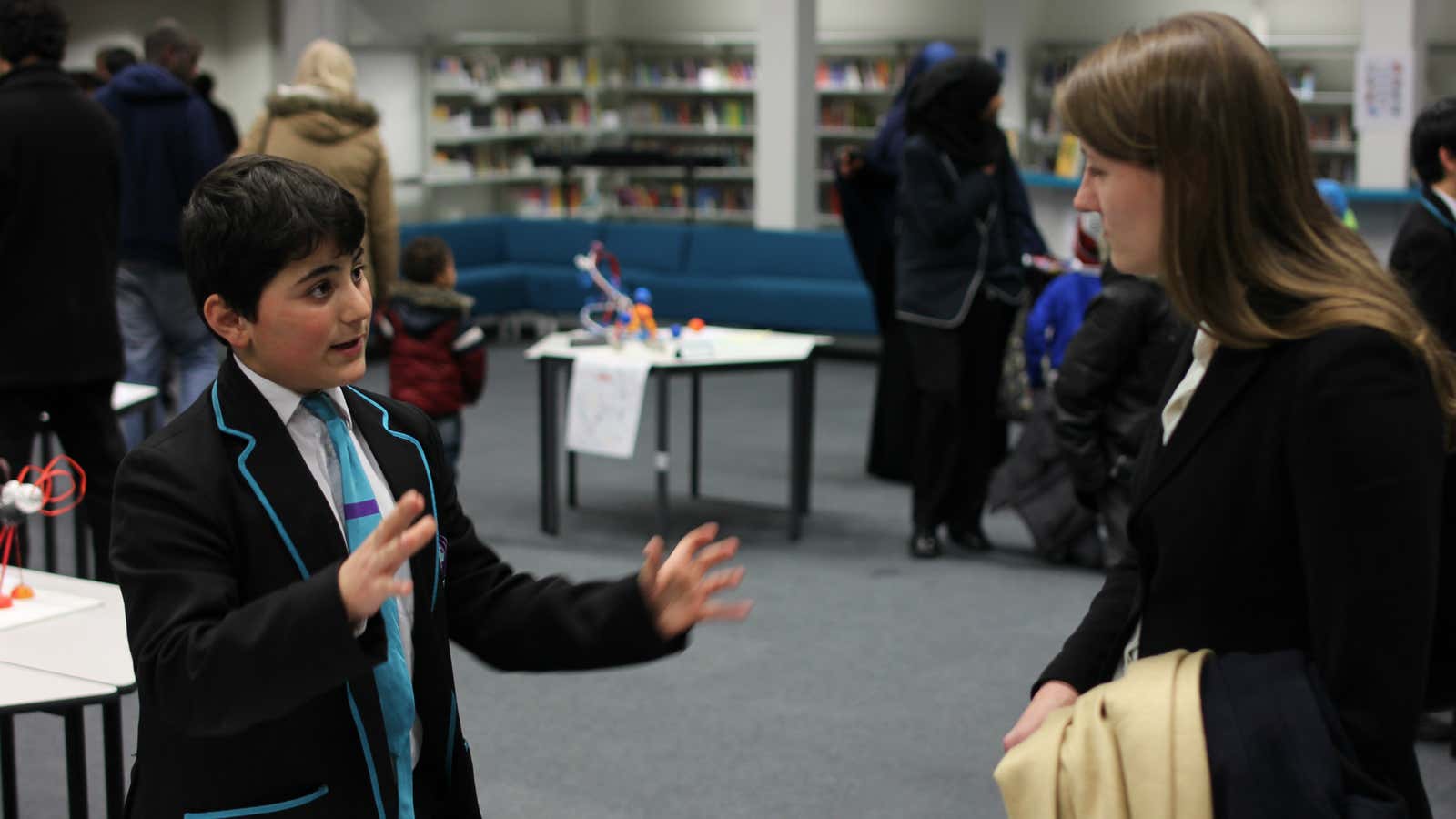In the UK, kids take a lot of high-stakes tests. They take exams around age seven, and more around age 11. There are subject exams at 16 (GCSEs) and then, for those who want to go to university, tests known as A-levels at 18. There’s a battery of other assessments along the way. From a weirdly young age, British kids are regularly preparing for tests.
A new survey shows the vast majority of teachers think this system stinks.
According to a new report by YouGov and TeacherTapp, 84% of teachers think school prepares children for exams, but 75% wish that weren’t the case. Students and parents aren’t thrilled either: 60% of kids aged 11-18, and 50% of parents of kids that age, want schools to focus on more than just passing exams.
If there is a majority of teachers, students, and parents in favor of changing the system, what’s the hold up?
Reforming schools is a bear of a task, in part because there are so many different people involved: governments, who vie for accountability and evidence that spending taxpayer money reaps a measurable return; teachers, who see how children learn and develop every day; parents, who often draw on their own school experience, despite the fact that the world has changed a lot in the two to three decades since they were students; and the students themselves, who prefer to learn about things that are relevant and meaningful to their lives (if only adults would listen).
For change to happen, these groups have to agree what education is for: to make better citizens? Productive employees? Kind people? Killer test takers? And once—or whether—they sort that out, they have to figure out what to do about it.
The YouGov/TeacherTapp survey is part of a larger report, titled Reimagining Education Together, written by the UK charity Big Change (which is run by Richard Branson’s children) and the Innovation Unit, a social enterprise based in the UK, Australia, and New Zealand. It proposes a fundamentally different way to think about educational reform, and offers 20 case studies from around the world about how to make it happen.
Essie North, CEO of Big Change, said that patterns emerged among successful change makers. “They question not only the process but also the purpose of education,” she said. “They have the vision to look at what we collectively need for the long term.” They all shared a human-centric approach to change, including a willingness to build relationships and seek engagement with lots of groups. It also takes a lot of humility, because “change happens at the pace of trust,” she said.
The 20 pioneer stories had to fit a few criteria: they focused on the “whole” child, not just academic achievement; they helped kids tackle real-world problems; they were not one-size-fits-all; and they prepared kids for their future working lives.
Voice21, for example, promotes oracy, or the ability to express oneself clearly, in schools across England. It was born out of the founding of School21, a successful and radical experiment to try and educate students beyond exam results (the “head”) to also include character and well-being (the “heart”) and generating ideas, problem solving, making a difference (the “hand”).
“I think one of the biggest barriers to the students we serve really getting on in life is lack of good communication skills,” said Peter Hyman, one of the founders of School21 and its head teacher. “We need to elevate speaking to the same level as reading and writing.”
School21’s positive results, especially among disadvantaged students, led others to ask for guidance. The school’s foundation created Voice21 to share a blueprint to let teachers use a spoken communication curriculum. Rather than lesson plans that tell teachers what to do, it focuses on principles like how to build—with students—discussion guidelines on how to respect different opinions, or disagree (“I hear you but I disagree,” or “Could you clarify what you mean by ‘different’?”)
Andreas Schleicher, head of the education and skills unit at the OECD, who is trying to change what we test, often points to the UK as being a very exam-heavy, rote-learning system. He welcomed the report on the basis that it relies on a larger group people to try and change things. “Educational leaders are rarely successful with reform unless they build a shared understanding and collective ownership for change,” he said. “The exam system in the UK, in particular, is not currently doing this, and teachers, students and parents feel disempowered.”
This, in turn, creates more problems: The UK, like many other countries, faces a crisis in teacher recruitment. One survey found that 81% of teachers said they considered leaving the profession in the past year because of the pressures of their workloads. Recruitment targets have been missed for six years running, and a third of teachers give up within five years. Big changes are necessary, but even small ones are welcome.
